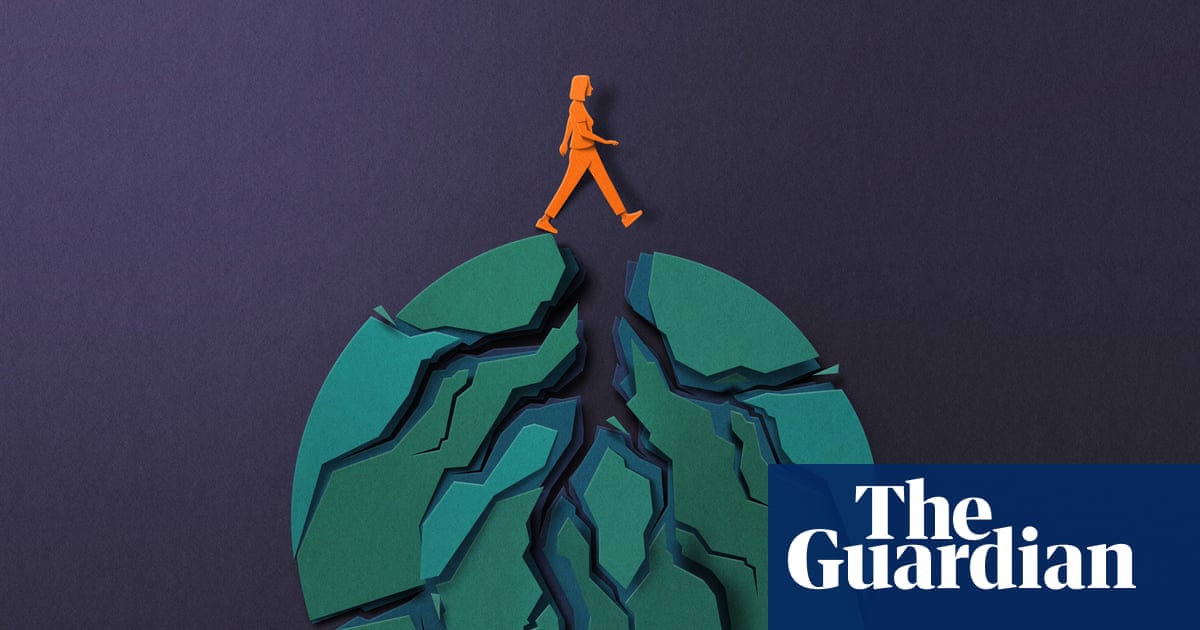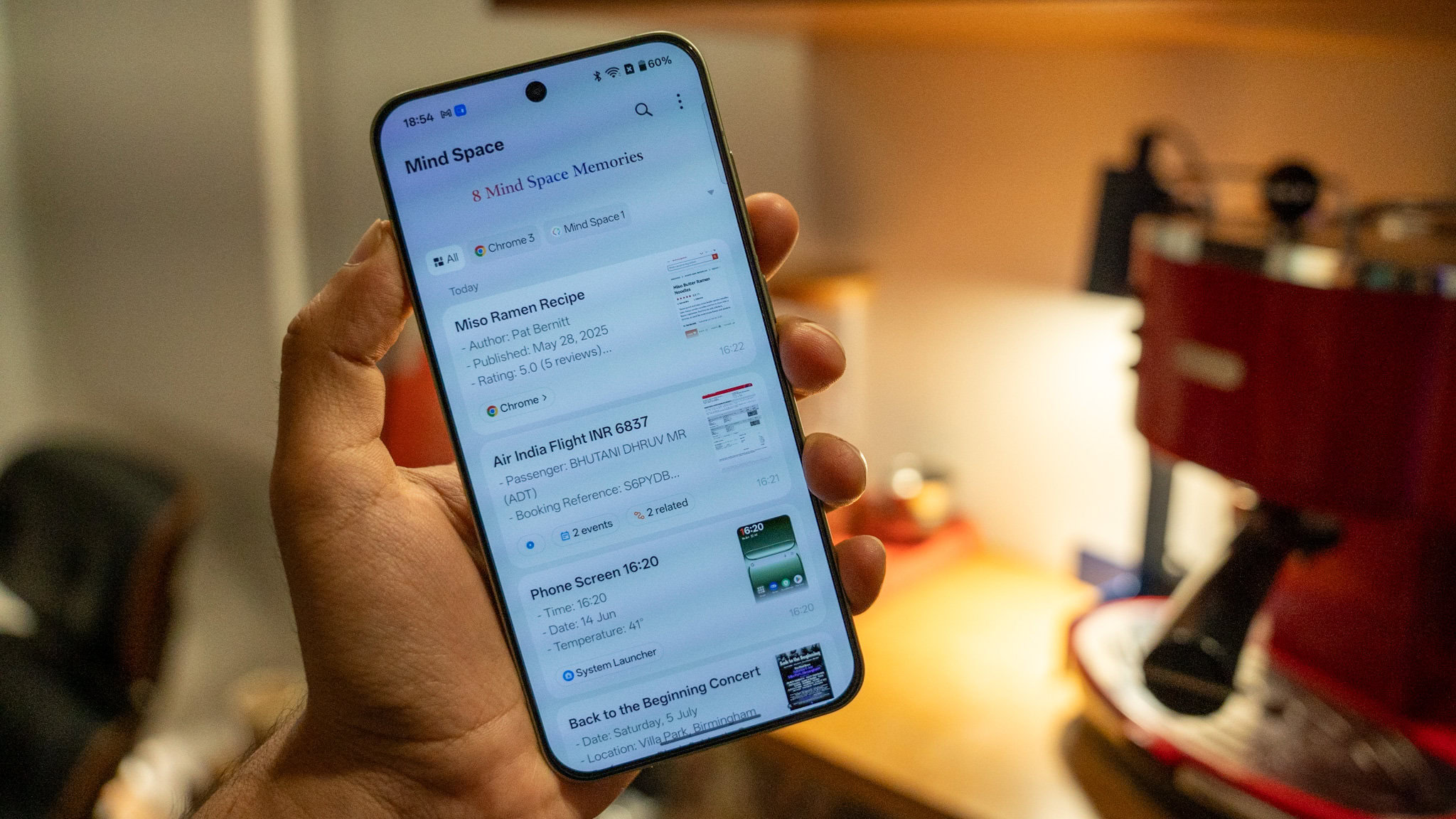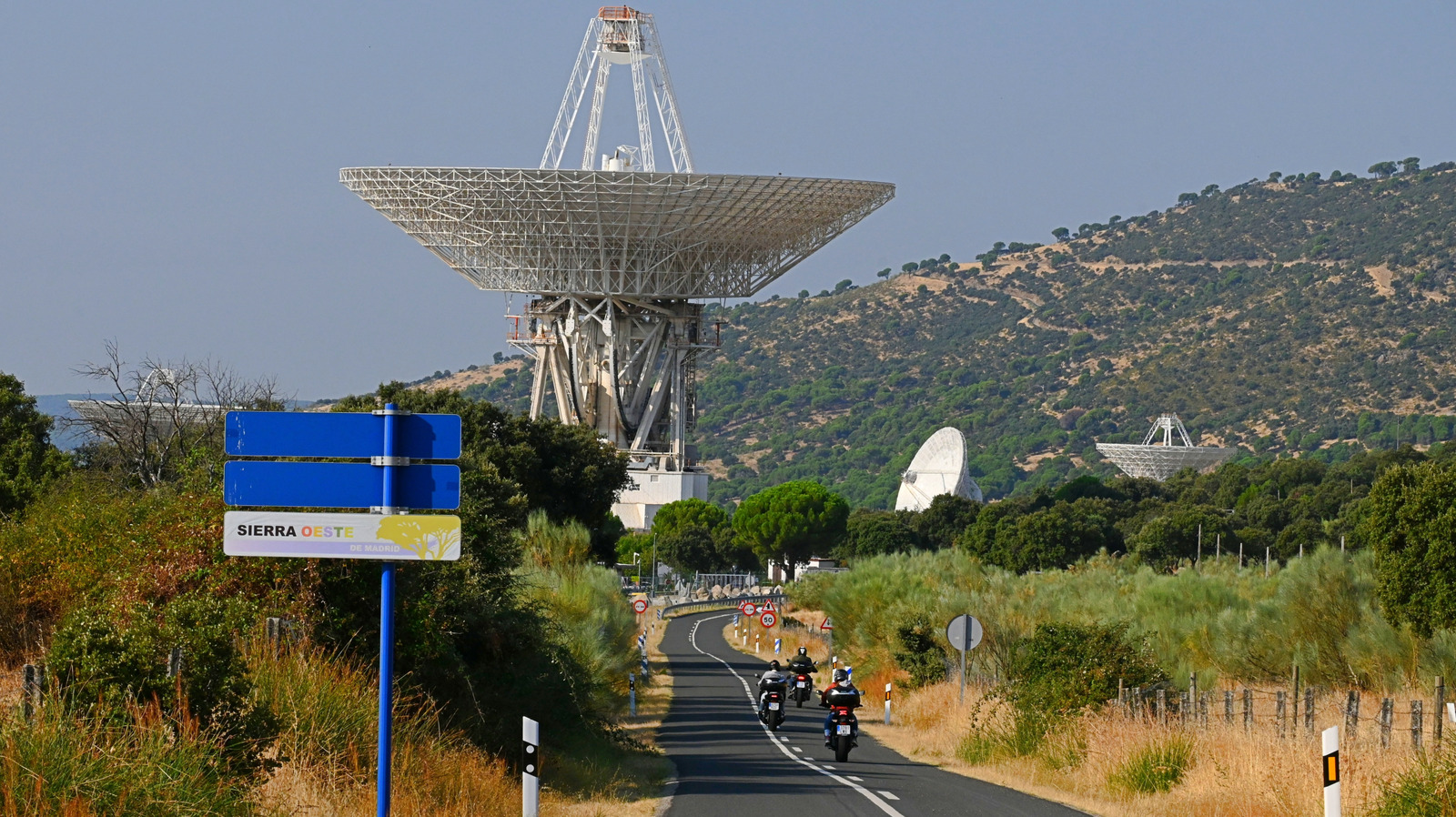What happens when an internationally bestselling historian, a Nobel peace prize-winning journalist and a former politician get together to discuss the state of the world, and where we’re heading? Yuval Noah Harari is an Israeli medieval and military historian best known for his panoramic surveys of human history, including Sapiens, Homo Deus and, most recently, Nexus: A Brief History of Information Networks from the Stone Age to AI. Maria Ressa, joint winner of the Nobel peace prize, is a Filipino and American journalist who co-founded the news website Rappler. And Rory Stewart is a British academic and former Conservative MP, writer and co-host of The Rest Is Politics podcast. Their conversation ranged over the rise of AI, the crisis in democracy and the prospect of a Trump-Putin wedding, but began by considering a question central to all of their work: how to live a good life in an increasingly fragmented and fragile world?
YNH People have been arguing about this for thousands of years. The main contribution of modern liberalism and democracy was to try to agree to disagree; that different people can have very different concepts of what a good life is, and they can still live together in the same society, agreeing on some very basic rules of conduct. And the challenge was always that people who think they have the absolute answer to what is a good life try to impose it on others, partly because, unfortunately for many ideologies, an inherent part of the good life is attempting to make everybody live it. And even more unfortunately, in many cases, it seems that it is easier to impose it on others than to do it ourselves. If we take the original crusade in medieval Christian Europe, you have all these people who can’t live a Christian life of modesty and compassion and love your neighbour, but they are able to travel thousands of kilometres to kill people and try to force them to live according to these principles. And what we are witnessing in the world right now is more of the same.
RS At the heart of that observation is this extraordinary idea, which, broadly speaking, is called liberalism. It is an idea that became very powerful, particularly by the 19th century, and found a new form after the second world war. We’re the heirs of that: it assumed things like a rules-based international order; an idea that we would agree how we behaved, state to state; it had an idea of democracy at its heart. And of course, that idea of democracy has a lot of the ingredients that Yuval is talking about, which is tolerance, human rights – how you protect the minority from the views of the majority. And there was an extraordinary period that probably lasted until the mid-2000s where it really seemed possible that this was the natural destination of humanity. And then things began to come off the rails. Now we find ourselves in a world where almost every bit of the model has entered its shadow form. So instead of focusing on democracy, we’re in a world dominated by authoritarian populism. Instead of a world of free trade, we’re in one that’s increasingly about protection and tariffs. Instead of a rules-based international order, we’re in a world of isolation: the strong do what they can, the weak must suffer what they must. And all this, of course, is then reinforced by social media and increasingly by AI.
MR The biggest question we have today is whether impunity will reign, because it’s clear from what is happening in the physical and virtual world that an international rules-based order is not working. How do you live a good life when big tech is using surveillance for profit, to manipulate us in order to keep making more money? Now we’re individually targeted by technology that can go to the cellular level of every democracy.
All five major world religions say that the battle that matters in order to live a good life is the battle inside yourself: your better self versus your worst self. Do unto others as you would have them do unto you; it’s a simple thing. But how do we maintain these values when the very way we connect with each other is corrupted?
YNH What is new in the current situation is that we now have the technology to hack human beings and manipulate the inner battle in a way that was simply impossible in the middle ages or even in the 20th century. Big corporations, and anybody wielding this new technology, can both decipher and also manipulate human desires and thoughts in a way that is unprecedented. And liberal democracy, as it was constituted in the 18th and 19th century, really doesn’t know how to deal with it.
RS There’s also the possibility that technology begins to overshadow us. If you think about civilisation, a lot of it traditionally was about these great figures, these role models, these heroes. And what is a hero? Somebody who stretches the limits of what it means to be human. We believe we are this extraordinary species who can do things in science or poetry or drama that no other species can do. The risk of artificial general intelligence is that suddenly it is quite literally superhuman. At that point, if it can effortlessly write a poem better than I can, create a play better than I can, suddenly we are diminished.
MR It would be great if the technology that is enabling this transformation is actually 100% accurate. It is not. But because we’ve grown up with integrity of information, it’s much easier to fool us, because when you see it in writing, you expect it to be right. The way AI has been pushed in our society is completely separate from facts. And I know Yuval in his book says information is not about facts, it’s about the stories we tell, but facts anchor our shared reality.
A question I would like to ask you guys: do you think people are fundamentally good or fundamentally evil? I sound super religious in this conversation, but really that makes a difference, because what we’re doing now in the public information ecosystem, part of the breakdown of democracy, part of our ability to elect illiberal leaders democratically, is because we’ve muted the goodness of humanity. I’ve covered the crappiness of humanity, of people killing each other, I’ve been in war zones, but I’ve also been in these areas where a natural disaster happens and people are incredibly generous. We would not have survived the six-year presidency of Rodrigo Duterte if there were not people who gave not just of themselves, but gave money to Rappler. So I think this is what’s at stake.
YNH One of the most important observations is that goodness is not closely related to intelligence. Artificial intelligence is the most important technology of the era; it has been forgotten that intelligence is no guarantee of goodness or even of wisdom, that when you look at the grand span of human history, you don’t see a clear correlation between intelligence and compassion, or even a clear-sighted view of reality. Homo sapiens is by far the most intelligent species on the planet, and it simultaneously is the most deluded species: humans believe the kind of nonsense that no chimpanzee or elephant or rat would ever believe. We are now creating a superintelligence, and there is every reason to think that it will be super deluded.
RS Yuval is unusual because he is capable of considering the possibility of where we might be in 200 years. But let’s try 20 for a second. When we think about the world, often we think about it from Silicon Valley, and we imagine that really the future is Star Trek, and Elon Musk is off to Mars. For most, perhaps half of humanity, over the next decades to come, hundreds of millions will be living on incomes of under $2 a day, and billions under $5 a day.
The next thing is that conflict is changing. We can see with what’s happening in Gaza and to some extent in Ukraine, the way in which wealthy countries with technology can inflict astonishing damage on their neighbours and take very little risk themselves. Added to that, there is a push towards an arms race happening all over the world. So if we look at Europe, we’re now increasing our spending on defence to 5% of GDP. That will literally suck hundreds of billions of euros every year out of our health systems, our education systems, our welfare systems, at exactly the moment that our economies are flatlining and our populations are getting older, so there’s every likelihood that over the next 10-20 years, at the same time as AI is developing, much of the world will begin to feel like a shabbier, poorer version of the current world, that median incomes will stagnate and that conflict will rise.
MR I completely agree with what Rory said, but I’m more pessimistic. I don’t think it’ll take 20 years. The Philippines gets an average of 20 typhoons every year. We’re watching islands sink, and yet the west is debating whether climate change even exists.
I think the death of journalism is around the corner within six months to a year. The internet is getting worse by the day, and there are absolutely no guardrails put in place, even as news organisations are being forced to pay for that, and our content is exploited. It is a very predatory online world, and that has translated to the world we live in.
YNH If I had to characterise the emotional tone of what I have been doing for quite a number of years, I would say that I was in the business of anxiety – that I’m creating more anxiety around AI, climate change, whatever. Now we need to switch to a different project, which is to rebuild trust, because when there is too much anxiety and you can’t trust anybody or anything, you can’t do anything. The most important thing is to rebuild trust in human institutions, in the media, in government, elsewhere. The big question is, how do we do that?
RS I would say that that involves rebuilding those human institutions. My experience as a politician is that government is much worse than I could ever have imagined. Liz Truss, my boss and colleague, who became prime minister in the United Kingdom, basically thought that her job was Instagram and campaigning, and she dedicated very little time to any serious consideration of policy, and in fact was derogatory of people who worried too much about the real-life impacts of what she was doing. The whole thing has become a game.
MR How long will we pretend that there is integrity of elections as the world falls off the cliff? Part of what made the international rules-based system work was that we had a powerful anchor for it: that we did what was for the greater good. We expected leaders to pull back from their greed. And if they didn’t, journalists would expose these things. Now that the US doesn’t seem to care about any other country but itself, what will that mean? Does that mean that we throw away every value system that was built into the international organisations? If the most powerful only work for themselves, is it every person for themselves?
YNH You see a re-emergence, in a strange way, of monarchist ideas: the leaders that are rising now are quite different from the 20th-century dictators. It’s not a coincidence that, in the US, one of the movements against Donald Trump is “No Kings”, because he is reviving something really medieval. One of the most amazing moments of the last year was the meeting between President Trump and President Zelenskyy in the White House. One of the things that emerged very clearly was that Trump does not think about politics as being an interaction between states or between people, in the sense of the American people, the Russian people, the Ukrainian people. He thinks about it as an interaction between persons, monarchs, dynasties. When people told him that Putin had broken previous agreements, Trump said, “Well, he broke an agreement with Biden, he broke an agreement with Obama, not with me.” And the implication is, the agreement is not between Russia and the US, the agreement is between two people, and if I make an agreement with Putin, I will make sure he sticks by it, but it only holds as long as I’m president. If you then replace me with someone else, that’s the end of the agreement. You see the return of the concept of politics as a dynastic affair between families. This is a bit crazy, but not too crazy, to think, for instance, of a solution to the Ukraine war where Barron Trump would marry Putin’s granddaughter, and they would get Crimea and Donbas as their kingdom.
Let me just say one more thing about this monarchical idea: in the 20th century, dictators served an ideology which, in a way, limited them, because if you’re, say, a communist dictator, you have to promote a communist ideology. You can’t really do what you want. With the new leaders like Trump, there is no ideology there. When you look at somebody like Trump or like Benjamin Netanyahu in Israel, the amazing thing is how much freedom of action these people have.
RS One thing that is so striking about the modern age is that we’ve lost an ethical vocabulary in engaging with leaders. I mean, fundamentally, what is Donald Trump? He is shameless. It would be very difficult for Aristotle or Cicero or a Renaissance theorist of politics, or indeed the writers of the American constitution, to imagine this degree of shamelessness, this degree of contempt for constitutions, contempt for minorities, contempt for the truth, the open performance of immorality. And very difficult also to imagine that we would have entered a world where we, at some level, are so tempted to just enjoy the spectacle, and have just lost the ability to be shocked that every day he does three or four things which in the old world would have shocked us to our core.
MR With Zelenskyy at the White House, it was shocking that the breaking news reporters just kept repeating what President Trump said, which was a lie. They could instead have used what is known as a truth sandwich: “Russia invaded Ukraine, President Trump says this, Russia invaded Ukraine.” In journalism, we have to shift: we can no longer stand behind “he said, she said”. Now we actually have to pull up and say, “This guy is lying.” Because those are the facts. So our reporting shifts. On the technology, we cannot live under surveillance for profit, we cannot keep getting manipulated in this way, because it encourages the worst of who we are. [At Rappler] we began to build a chat app two years ago. Our vision is for a global information ecosystem, but we anchor our news organisations with our communities. So this is how we move forward: we embrace the technology. We call it out where it is wrong. We look back at our history, and regardless of all of the problems of democracies, we still haven’t found a better system than this. Of course, it could all end soon, but we keep fighting.
YNH I think that more people need to realise that we have to do the hard work ourselves. There is a tendency to assume that we can rely on reality to do the job for us. That if there are people who talk nonsense, who support illogical policies, who ignore the facts, sooner or later, reality will wreak vengeance on them. And this is not the way that history works.
So if you want the truth, and you want reality to win, each of us has to do some of the hard work ourselves: choose one thing and focus on that and hope that other people will also do their share. That way we avoid the extremes of despair.









